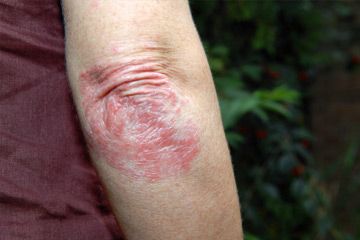
For Britt Marie Hermes, it all started with a trip to the dermatologist. She was 16 years old, suffering from psoriasis, and she wanted to ask her doctor about the root causes of the painful skin condition — was it genetic, environmental, affected by diet? Her dermatologist shut the conversation down.
"I remember him saying, 'Medication is your only option, this is it, you're going to have psoriasis the rest of your life, so you'd better get used to it,'" says Hermes, now in her 30s. "And that was that."
Advertisement
Hurt and confused, Hermes started exploring natural psoriasis remedies. Her curiosity for natural and holistic medicine grew, leading to dietary and lifestyle changes, vitamins and herbal supplements, and Chinese medicine. Graduating from college, she decided to follow her passion for natural health and enroll in a naturopathic medicine program at Bastyr University in Seattle, Washington.
Naturopathic medicine, as defined by the American Association of Naturopathic Physicians (AANP), is "a distinct primary health care profession, emphasizing prevention, treatment, and optimal health through the use of therapeutic methods and substances that encourage individuals' inherent self-healing process. The practice of naturopathic medicine includes modern and traditional, scientific, and empirical methods."
There are seven colleges and universities in the United States and Canada accredited to train doctors of naturopathic medicine. And 25 states and Canadian provinces have passed laws that officially license or register naturopathic physicians. According to information provided by AANP, there are roughly 6,000 practicing naturopathic physicians in the U.S., and those numbers are rising every year.
Hermes' story is common among naturopathic physicians and their patients. They had a chronic and painful condition that was either dismissed by doctors or overmedicated. Searching for relief, or even just someone who would listen, they looked beyond conventional Western medicine. What they found was a world where their undiagnosed maladies had a name — chronic Lyme disease, adrenal fatigue — and a way to cure them, naturally, with lifestyle changes, herbal supplements, acupuncture, physical manipulations and homeopathic elixirs.
But Hermes' story took an unexpected turn. After graduating from Bastyr and practicing as a naturopathic doctor for three years, she had a "pretty gnarly experience." She discovered that her boss and mentor was treating cancer patients with a non-Food and Drug Administration-approved natural chemotherapy drug called Ukrain. Compounded with growing fears that her naturopathic training hadn't prepared her to diagnose or treat truly sick people, she quit.
"I couldn't go to work every day and introduce myself as a naturopath and be part of this profession and continue to feel good about myself," says Hermes.
Advertisement


